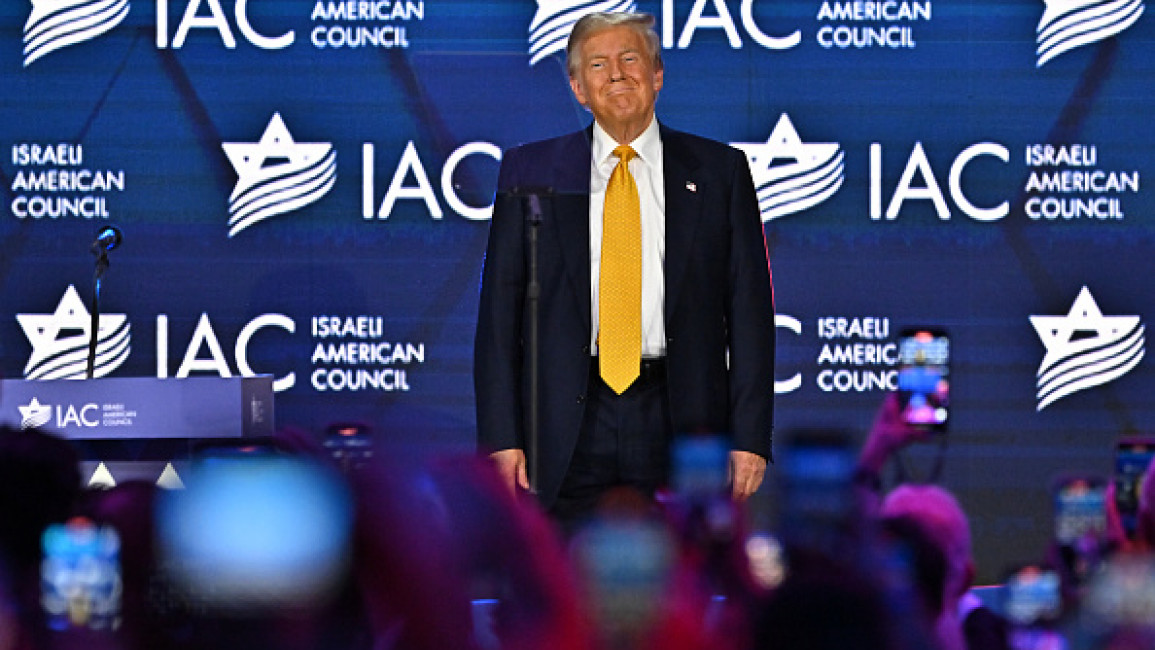Donald Trump faces backlash for 'antisemitic' remarks on Jewish voters
Donald Trump, the US Republican presidential nominee, has faced backlash from Jewish groups and Vice President Kamala Harris’s campaign following controversial remarks deemed antisemitic.
Speaking at the Israeli-American Council National Summit in Washington on Thursday, Trump expressed frustration over his trailing of Harris in polls among Jewish American voters.
He suggested that Israel’s existence could be at risk within two years if Harris wins, attributing this threat to Jewish voters' support for Democrats.
Trump stated, "If I don’t win this election—and the Jewish people would really have a lot to do with that if it happens because if 40%, I mean, 60% of the people are voting for the enemy—Israel, in my opinion, will cease to exist within two years."
Trump cited a poll showing Harris with 60% support among American Jewish voters, though it is unclear which poll he referenced.
However, a recent Pew Research survey did show Harris leading Trump among American Jews by 65% to 34%, reflecting the Democratic lean within this electorate.
US Jewish-led groups such as the American Jewish Committee condemned Trump’s comments as dangerous and reminiscent of historic antisemitic scapegoating.
Second Gentleman Doug Emhoff, the first Jewish spouse of a US president or vice president, dismissed Trump’s allegations as "typical Donald Trump gaslighting," referencing Trump’s controversial comments following the 2017 Charlottesville rally, where he said there were "fine people on both sides" despite the presence of antisemitic slogans.
Morgan Finkelstein, a spokesperson for Harris’s campaign, criticised Trump for his past associations with individuals accused of antisemitism, including far-right activist Nick Fuentes and rapper Ye, formerly Kanye West.
Trump has previously faced criticism for his response to endorsements from figures like former Ku Klux Klan leader David Duke, whom he claimed not to know well.
In response to the criticism, Trump highlighted his Jewish son-in-law as evidence against the antisemitism allegations and reiterated his stance on the importance of the upcoming election.
Trump’s address coincides with renewed scrutiny over his political allies.
An explosive CNN report revealed that Mark Robinson, a key Trump ally running for governor in North Carolina, had made racially and sexually discriminatory comments online, including referring to himself as a "Black Nazi."
Despite Robinson’s vow to continue his campaign, the Trump campaign has distanced itself from the candidate, though it continues to emphasise the significance of North Carolina in their strategy.
Additionally, Trump’s remarks come amid ongoing criticism of Kamala Harris from both sides of the political spectrum.
The Uncommitted movement, which opposes the Biden administration's approach to the Gaza conflict and calls for a ceasefire and an end to US weapons transfers to Israel, announced it would not endorse Harris but urged supporters to vote against Trump.
This movement, which drew significant support in the Democratic primaries, underscores the growing divisions within the Democratic Party over the administration's handling of the nearly year-long conflict.







 Follow the Middle East's top stories in English at The New Arab on Google News
Follow the Middle East's top stories in English at The New Arab on Google News
![President Macron was at the game to show 'solidarity' [Getty]](/sites/default/files/styles/image_330x185/public/2024-11/GettyImages-2184064735.jpg?h=199d8c1f&itok=yXTymeCt)
![Israel demolished homes in the Silwan area [Getty]](/sites/default/files/styles/image_330x185/public/2024-11/GettyImages-2183868368.jpg?h=199d8c1f&itok=TweR8vd0)
